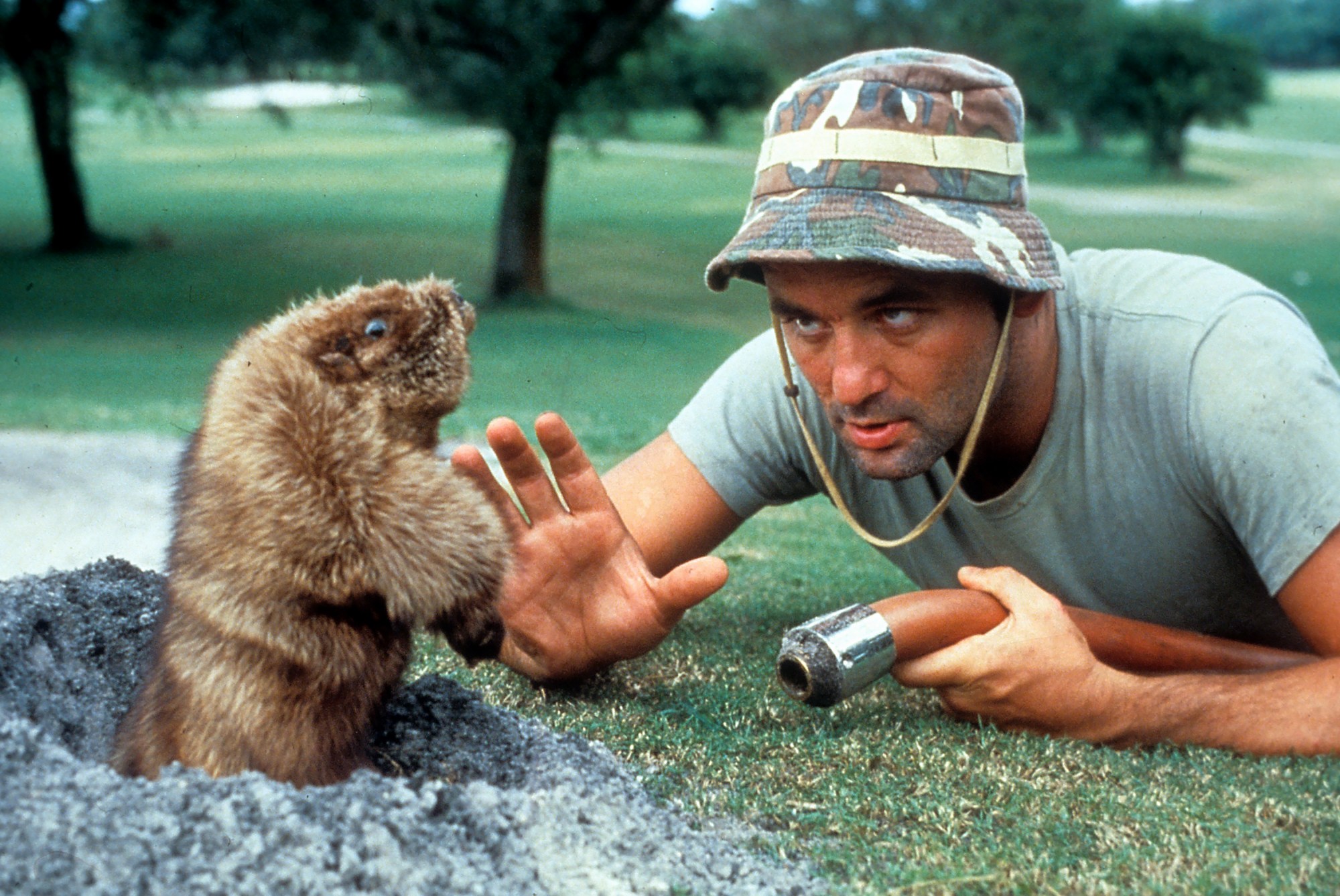
- Industry
Summer Classic “Caddyshack” Interweaves Life Lessons, Juvenile Humor
Golf is a year-round pastime, especially prevalent during the summer. There is no greater, more beloved, and highly quotable cinematic valentine to the most widely embraced adult sport in the world than Caddyshack, directed by Harold Ramis and anchored by a cast that includes Chevy Chase, Rodney Dangerfield, Ted Knight, and Bill Murray.
Comedies are under-appreciated in general, especially those which unapologetically indulge a blissfully crude and juvenile sense of humor. These movies are just disposable entertainment, made predominantly for teenage boys, and capitalizing on a trend and/or group of popular actors – at least that is how the thinking goes.
Caddyshack, a stylistic gumbo that front-burners scatological jokes and uses a fairly threadbare narrative as an excuse to let some funny performers completely cut loose, is very much that.
But it is also so much more — an impertinent movie (its irreverence can even be found in its title, which defaults to a non-preferred spelling) that stands the test of time because of the philosophical musings it manages to slip into its story.
Released theatrically on July 25, 1980, Caddyshack was met at the time with underwhelming reviews, many of which took aim at what critics deemed the film’s ramshackle plotting.
Opening in second place with $3.1 million at the box office, it would go on to make just under $40 million in American theaters. A scattered, slow-roll-out international release would, incredibly, play out for more than two years, something unthinkable in today’s marketplace. (As an interesting aside, Denmark would be the only territory where it would truly connect initially as a hit, trimmed to under 80 minutes to highlight Bill Murray as its star.)
Co-written by Ramis, Brian Doyle-Murray, and Douglas Kenney, and inspired in particular by Doyle-Murray’s teenage experiences working as a caddie — carrying the bag and clubs of players, and offering general moral support in addition to occasional suggestions — the story is set at the fictional private Bushwood Country Club. It centers around the efforts of Danny Noonan (Michael O’Keefe) to ingratiate himself with Judge Smails (Knight), one of the country club’s co-founders and the director of its scholarship program.
The movie derives much of its comedy from the culture clash provided by Smails’ seething contempt for both loudmouthed, nouveau riche real estate developer Al Czervik (Dangerfield) and Ty Webb (Chase), the aimless adult son of one of Bushwood’s other snooty co-founders.
Against the backdrop of a high-stakes match between Smails and Czervik, eccentric groundskeeper Carl Spackler (Golden Globe winner Bill Murray) engages in an increasingly ludicrous war with a gopher which endless burrowing is destroying the golf course.
The film’s Florida shoot in the autumn of 1979 was notoriously debauched, with booze, marijuana, and cocaine freely flowing and enjoyed by many. Murray’s largely improvised performance was originally planned as a cameo, later expanded with grabbed days on loan from Saturday Night Live. In its own refracted and highly singular way, the performance seems to be a flip-side, comedic riff on Robert De Niro’s Taxi Driver loner Travis Bickle — a character so uncomfortable in the world, one isn’t sure how he actually exists.
Rodney Dangerfield, known mostly at the time for his stand-up comedy, would experience the most immediate career bump. His album No Respect would win a Grammy Award the same year. The celebrated acceptance of his anarchic Caddyshack character sparked an unlikely late-stage bloom. Dangerfield went on to headline Hollywood movies like Easy Money, Back to School, Ladybugs, and the animated Rover Dangerfield.
The result of all this indulged offscreen behavior, and the friction of various freewheeling personalities, is a movie that leans heartily into the notion of meditative enlightenment. Along the way, it sells hard the idea of finding success and true happiness in letting go.
This life perspective is visible in every movement of Chase’s amiably shrugging, loose-limbed performance, as well as in Ty’s tossed-off advice: “Don’t be obsessed with your desires, Danny. The Zen philosopher Basho once wrote, ‘A flute with no holes is not a flute. A donut with no hole is a Danish.’”
It’s also present in Carl’s winding monologue about caddying for the Dalai Lama and not getting tipped, which famously ends with: “He says ‘Oh, uh, there won’t be any money — but when you die, on your deathbed, you will receive total consciousness.’ So I got that going for me, which is nice.” (When Ramis passed away in 2014, President Obama’s official statement of condolences communicated a “hope that he received total consciousness.”)
That existential thesis is made literal and given the concluding spotlight in “I’m Alright,” the toe-tapping song from Kenny Loggins that closes the film.
Perhaps because of this laissez-faire attitude, and the lessons the movie imparts to those who love a sport that is very easy to play but nearly impossible to master, Caddyshack’s reputation would only continue to grow over time, reaching new fans on cable TV, VHS, and then DVD.
Its multigenerational reach and high esteem in golf circles were confirmed in 2004 when none other than the legendarily buttoned-up Tiger Woods portrayed Murray’s Spackler character in a gloriously demented American Express commercial that sent up the film.
Life can be hard. It’s often full of unexpected twists and turns. The blissed-out, happily ridiculous Caddyshack espouses the enlightened view that to attempt to control each and every one of those zigzags is a fool’s errand. Embrace, instead, a lack of control.

